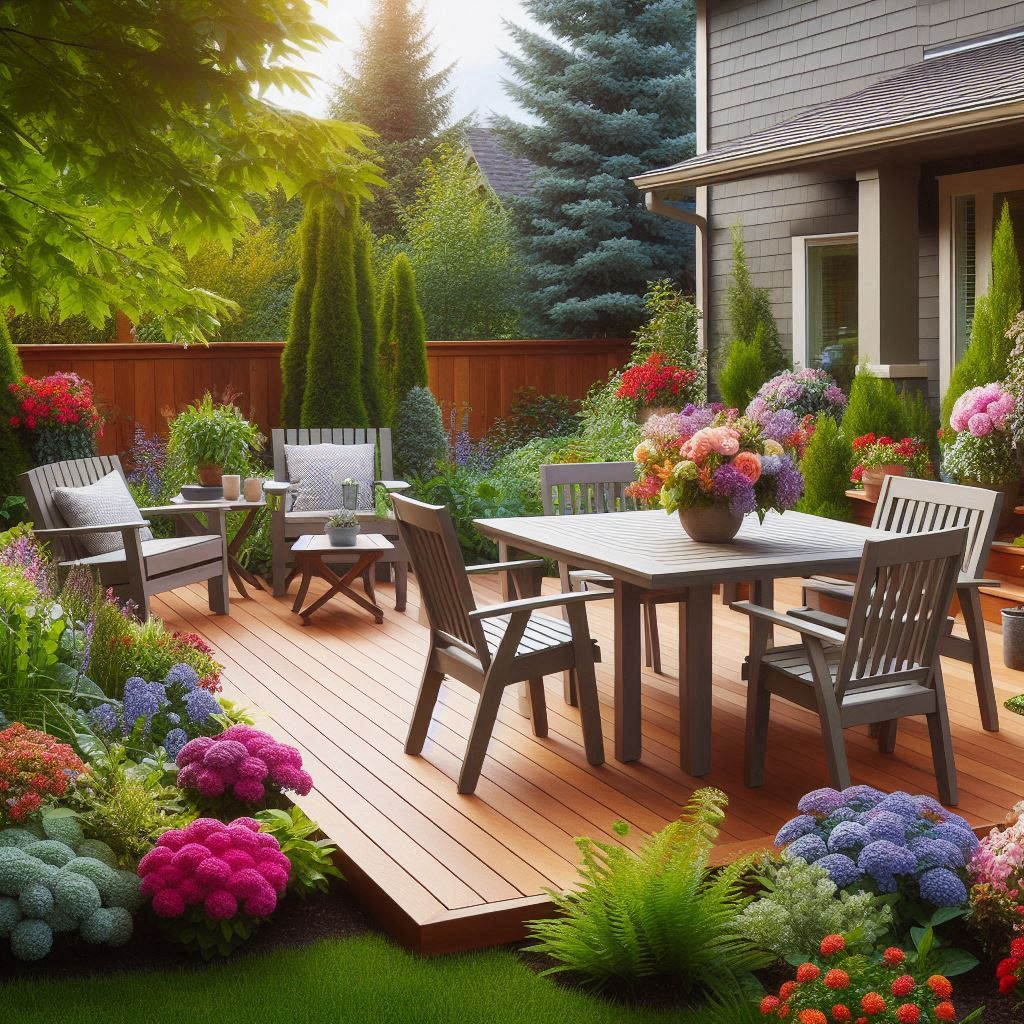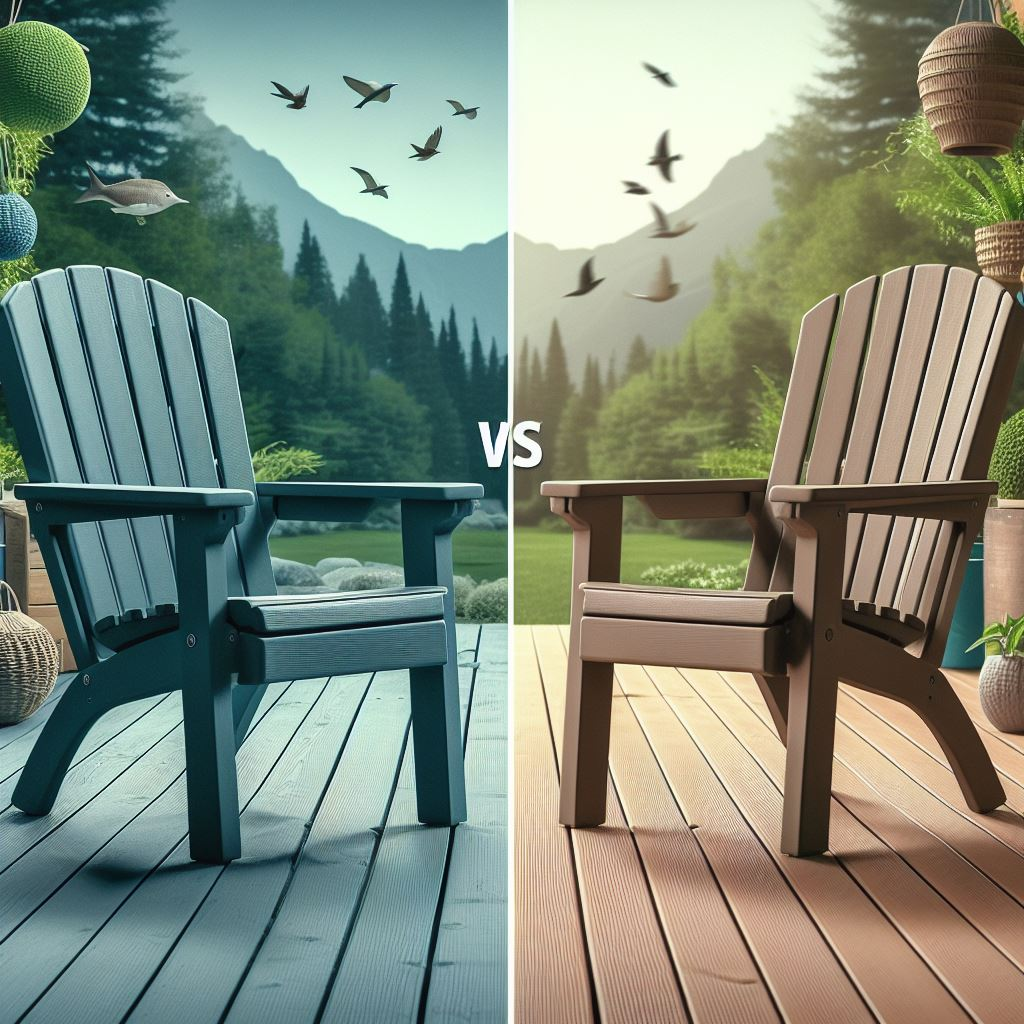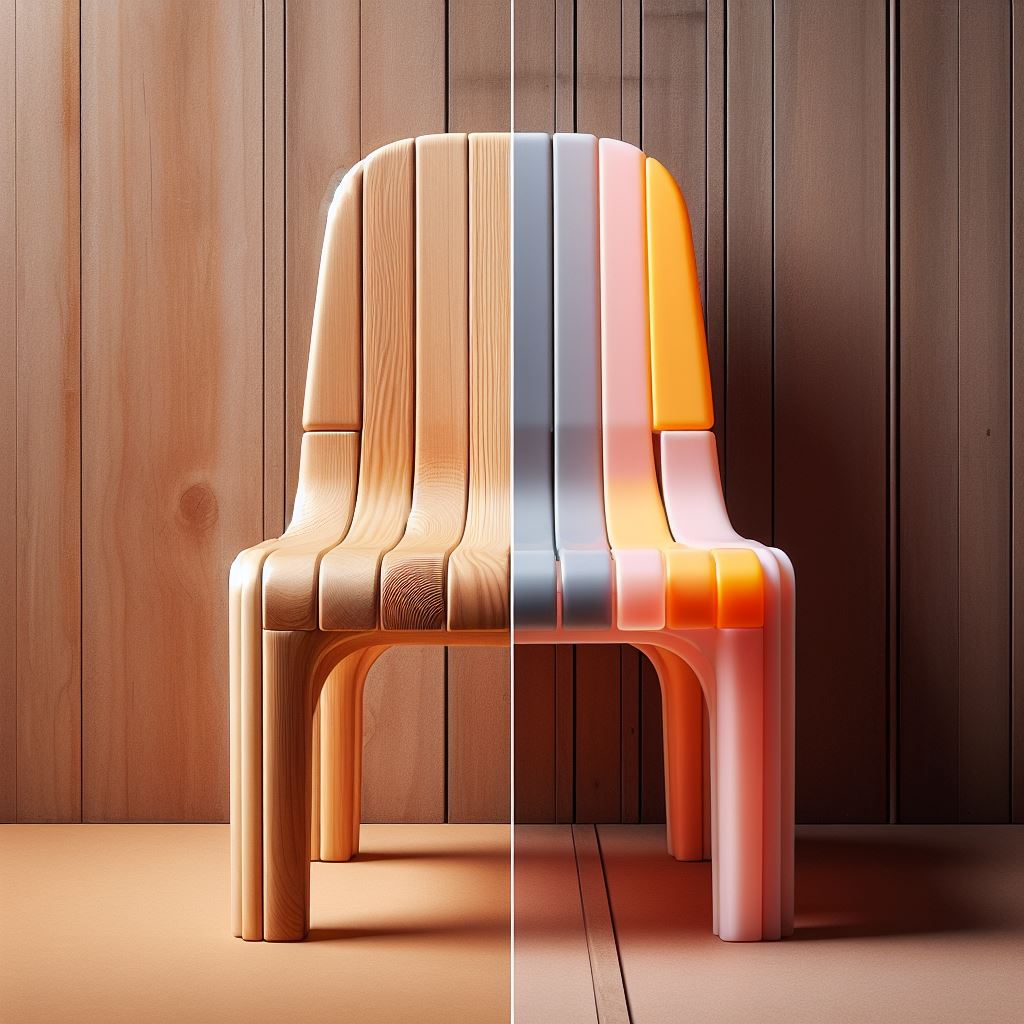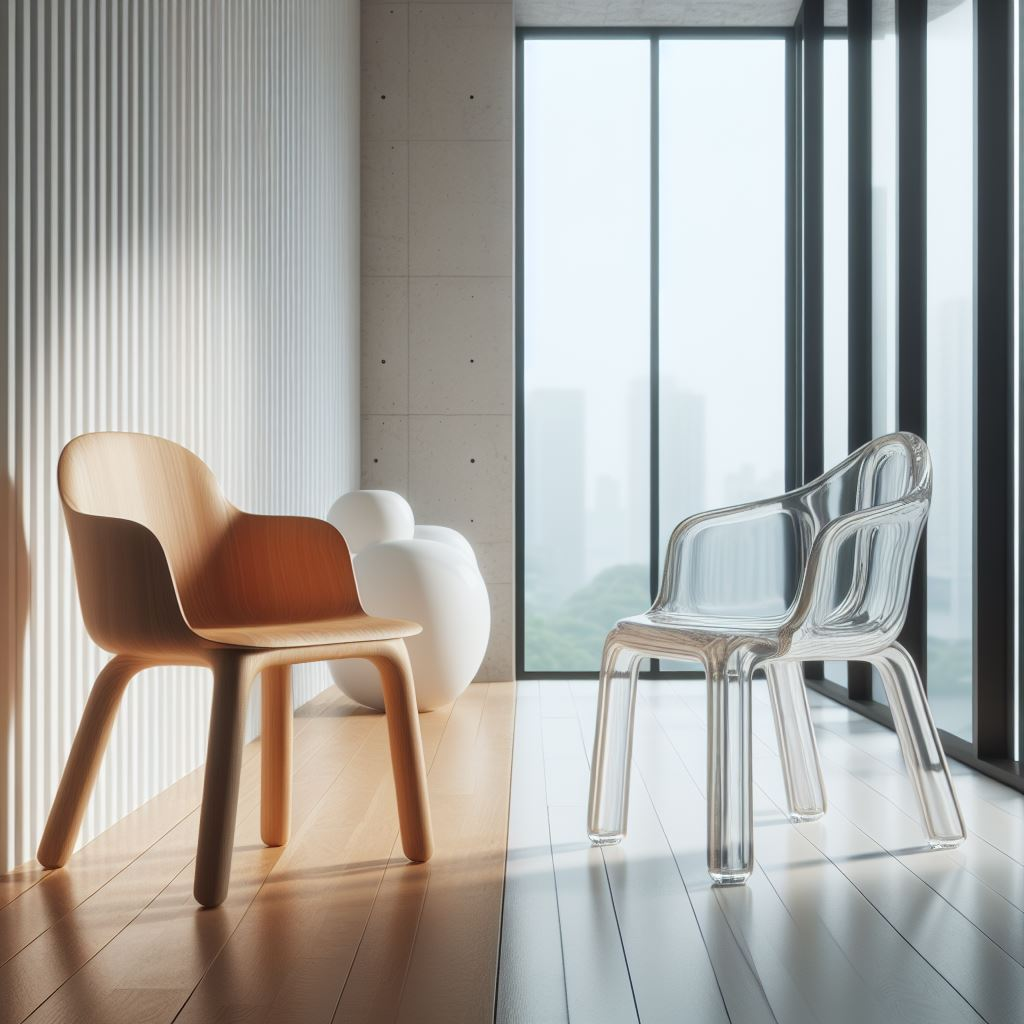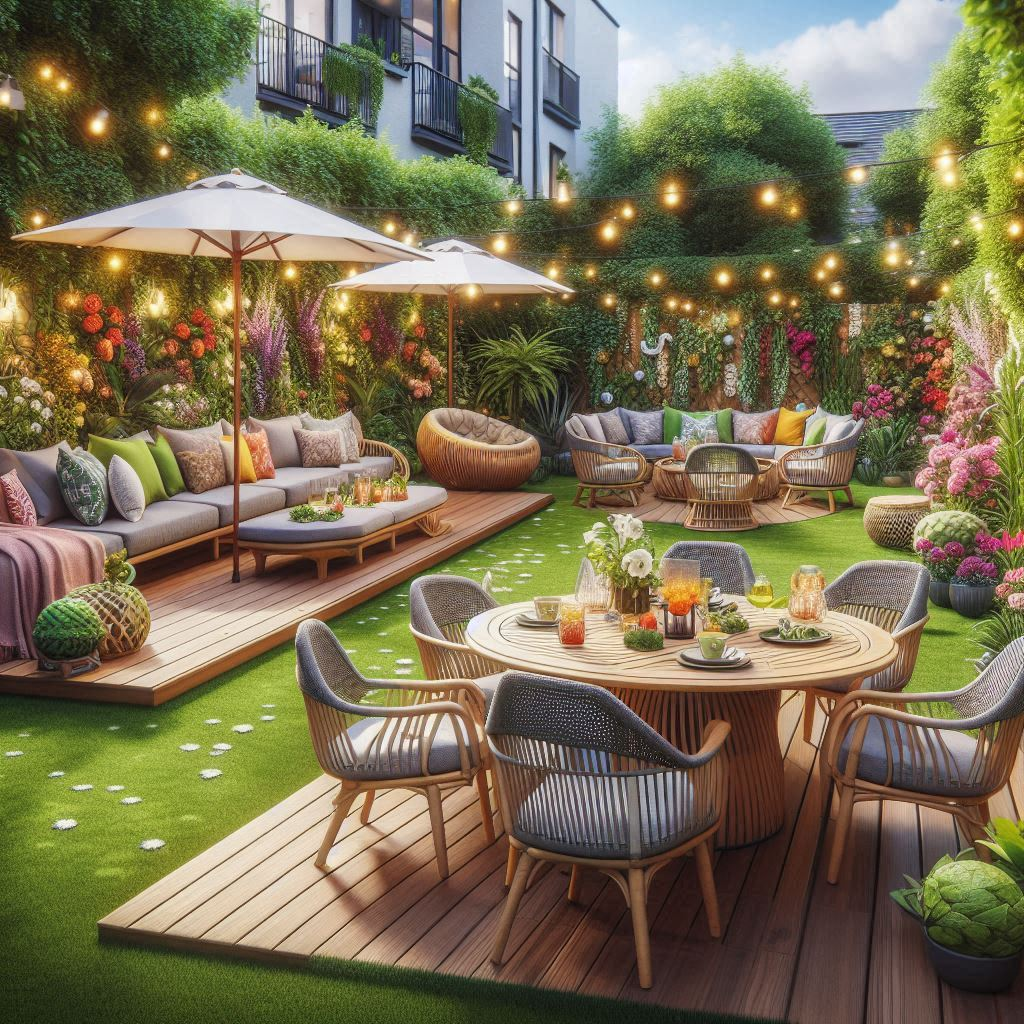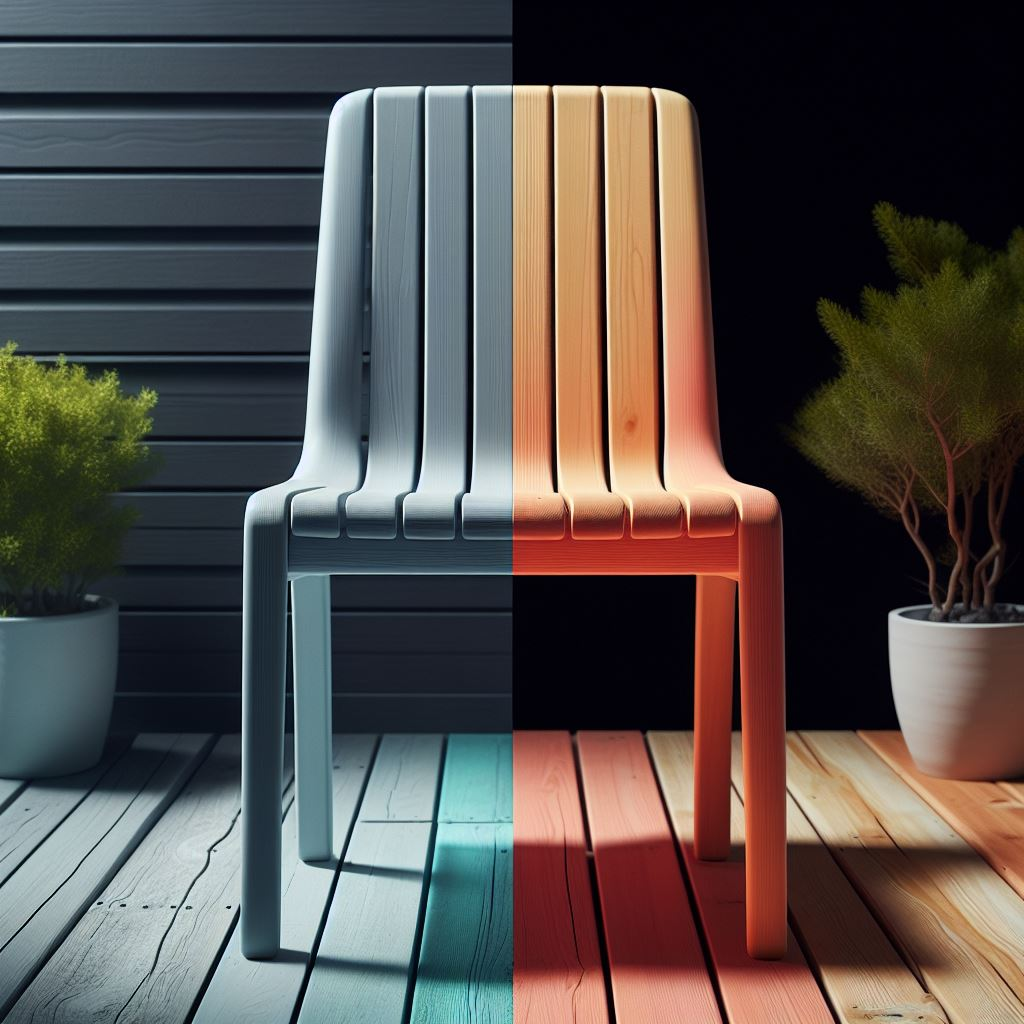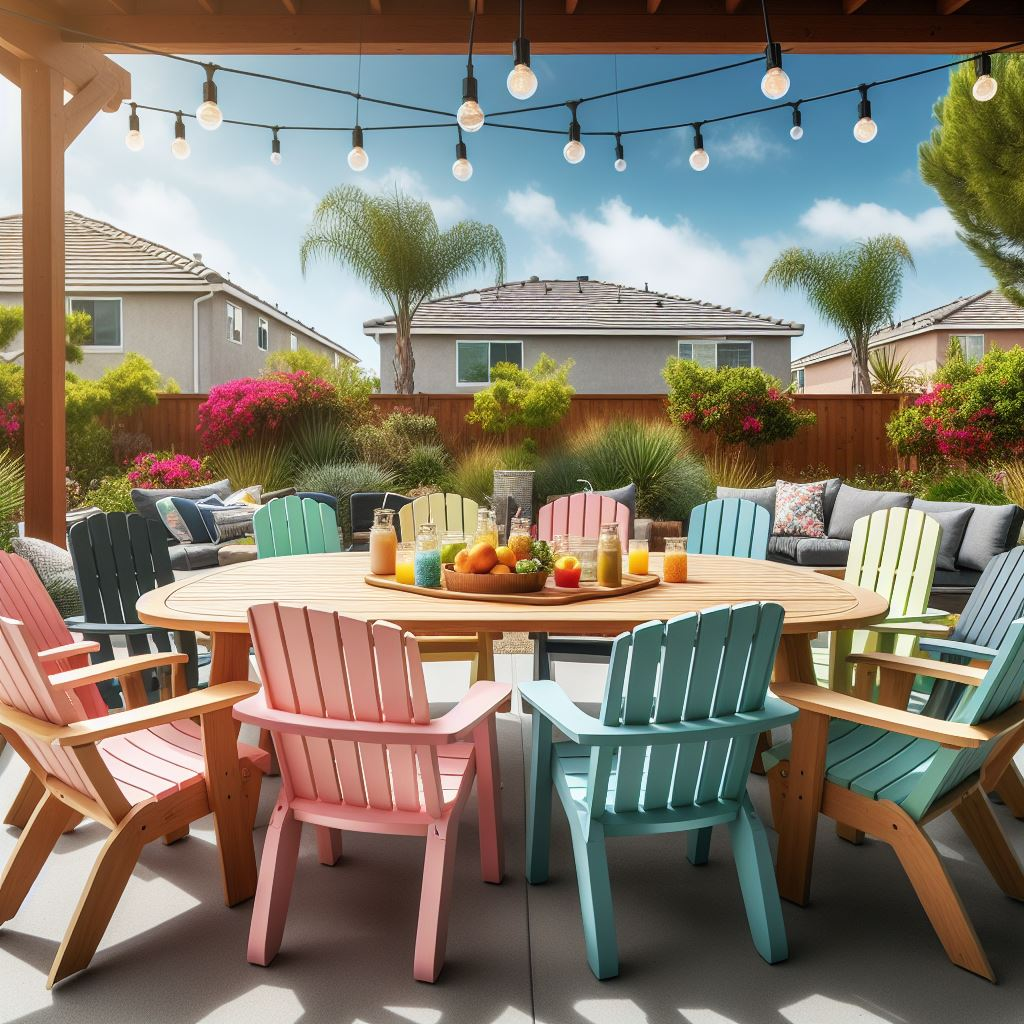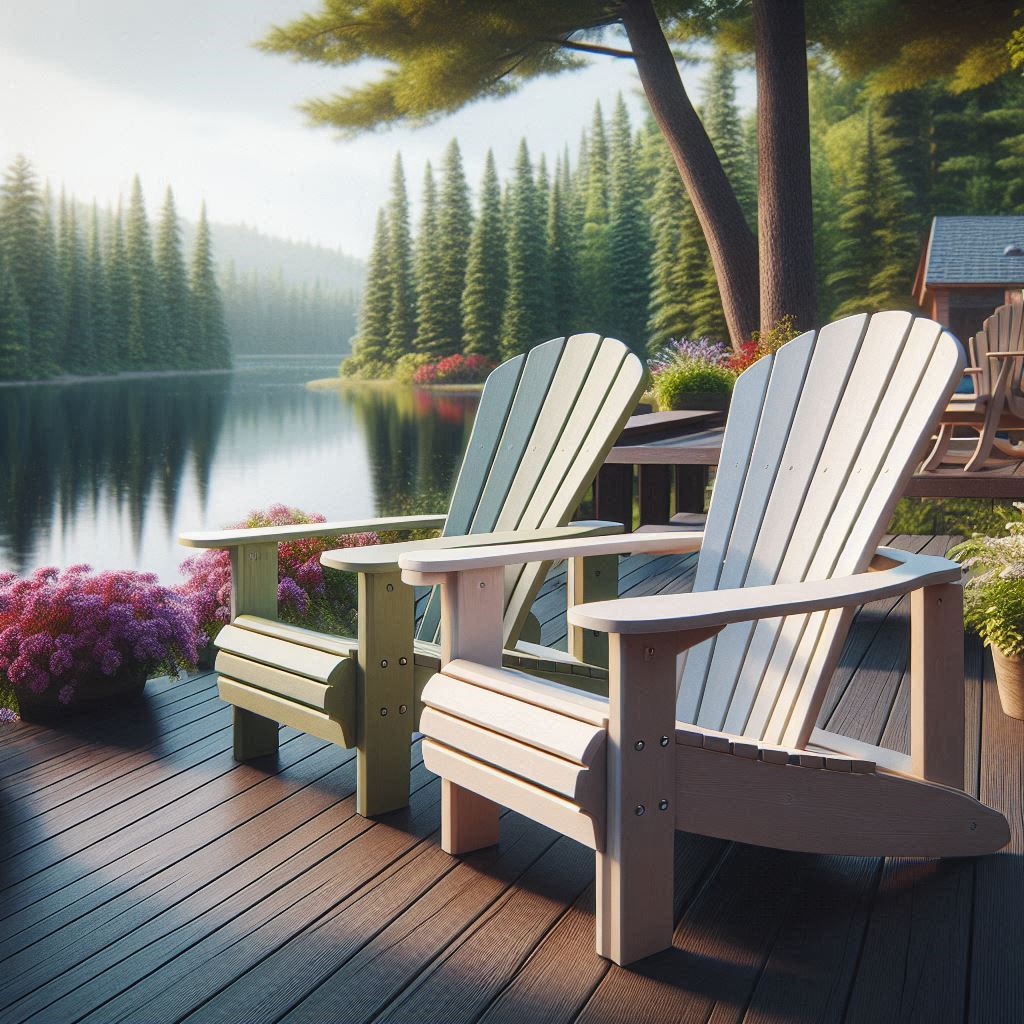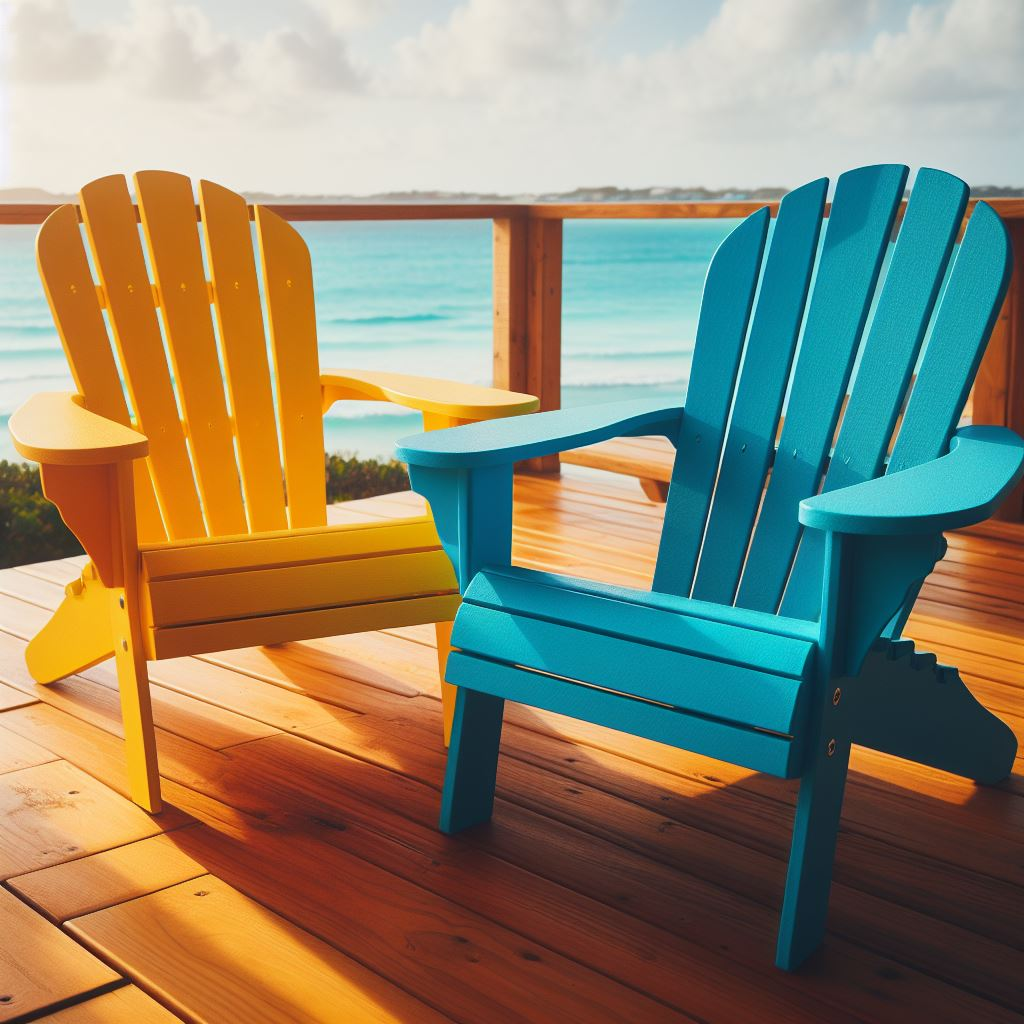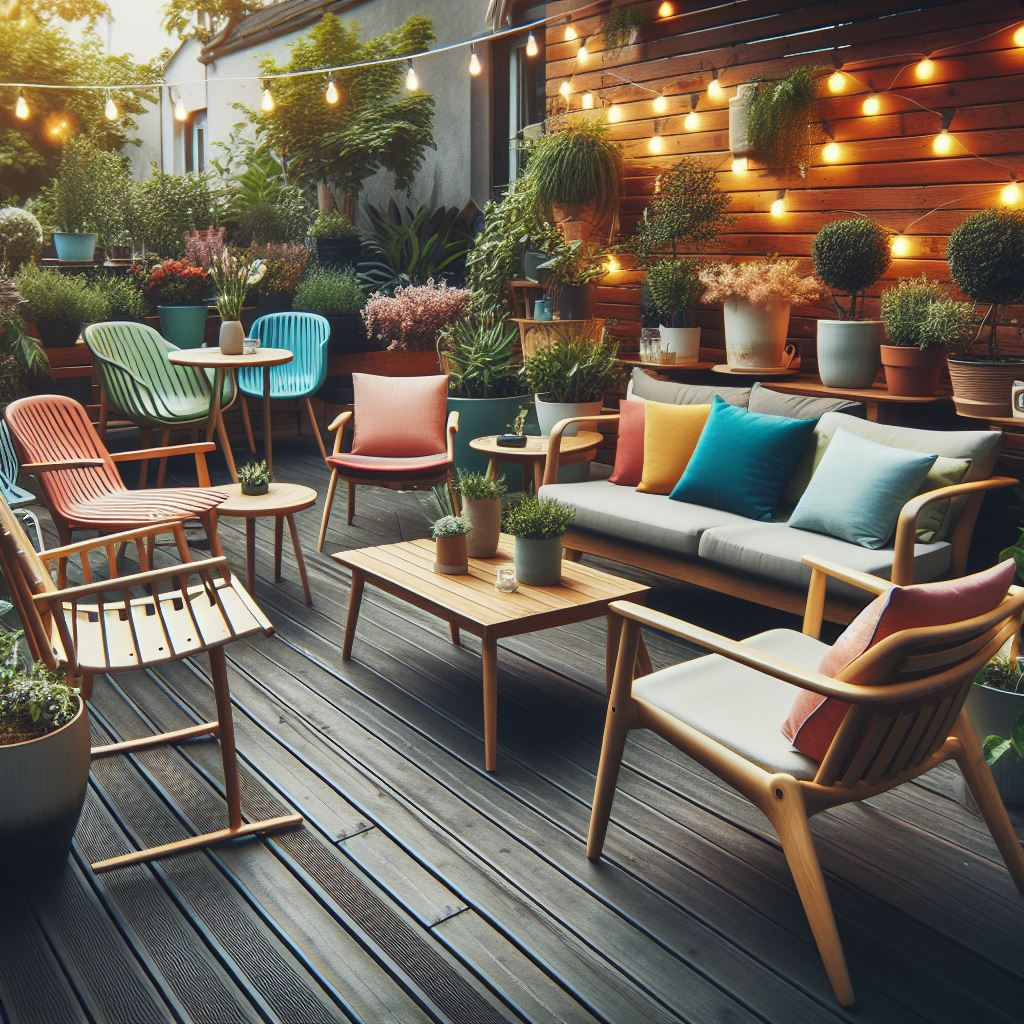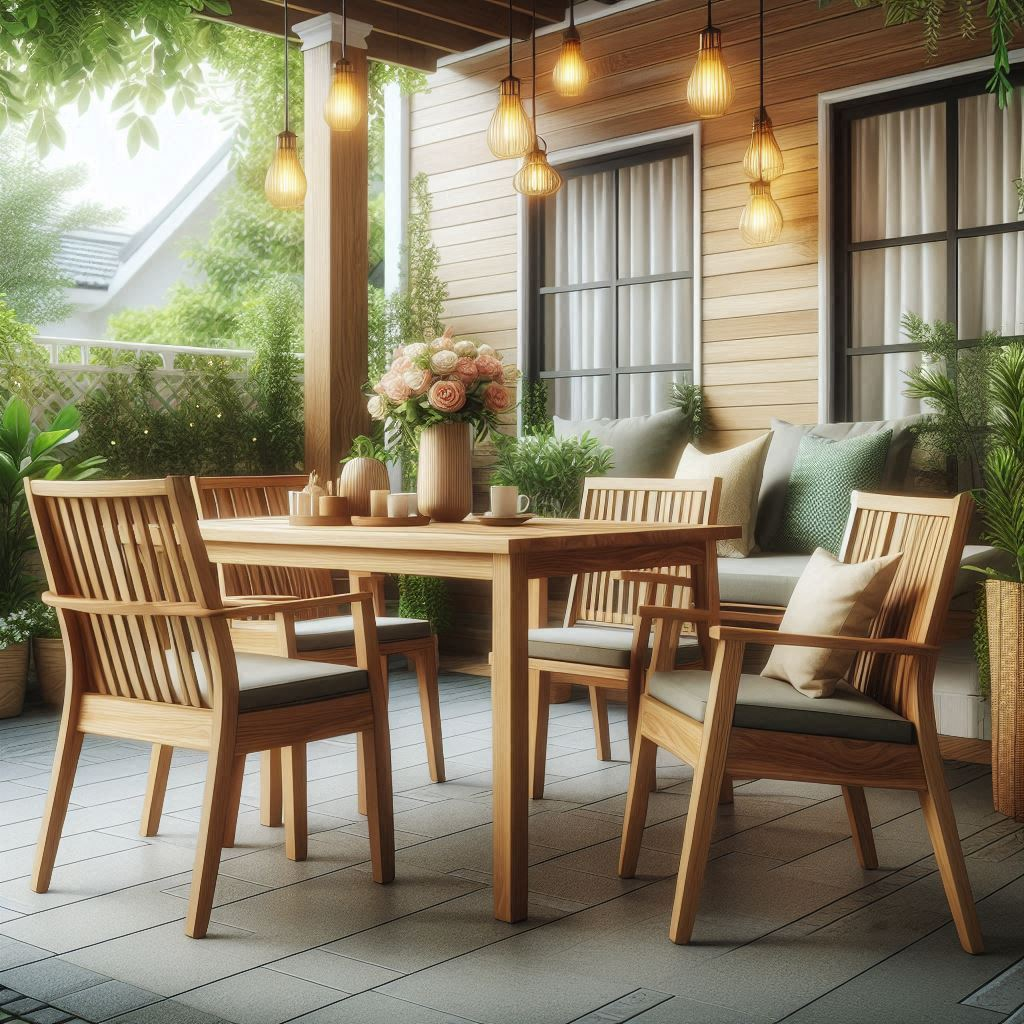When it comes to outdoor decking and furniture materials, Polywood and Azek stand out as two popular choices, each with its unique set of characteristics. This comparison aims to provide a comprehensive overview of these materials, helping beginners, experts, and budget-conscious buyers make informed decisions.
Importance of the Comparison
For beginners, understanding the differences between Polywood and Azek can be crucial in selecting the right material for their projects. Experts, on the other hand, may benefit from a deeper dive into the technical aspects and performance metrics of each material. Budget-conscious buyers will find value in comparing the cost-effectiveness and long-term savings associated with these options.
Methodology
To ensure a thorough and accurate comparison, this article will draw on hands-on testing, user feedback, and expert insights. By combining practical experiences with professional opinions, we aim to provide a well-rounded perspective on Polywood and Azek.
Unique Aspects
What sets this article apart is its focus on real-world applications and user experiences. Rather than just listing features, we delve into how these materials perform in various conditions, their aesthetic appeal, and their environmental impact. This approach ensures that readers gain a comprehensive understanding of what each material has to offer.
What Sets the Products Apart?
Clear Definition of the Products
Polywood is a synthetic lumber made from recycled plastic, primarily used for outdoor furniture. It’s designed to mimic the appearance of natural wood without the maintenance requirements. Azek, on the other hand, is a composite decking material composed of PVC (polyvinyl chloride), which offers durability, resistance to moisture, and a wood-like appearance.
Brief Background on Brands or Models
Polywood is a brand well-known for its eco-friendly approach, producing outdoor furniture that withstands the elements and reduces plastic waste. Azek, a prominent name in the decking industry, offers high-performance materials designed to provide long-lasting beauty and functionality with minimal upkeep.
Target Audience for Each Product
- Polywood: Ideal for environmentally conscious consumers who seek durable, low-maintenance outdoor furniture. It’s perfect for those who want to enjoy the look of wood without the associated upkeep.
- Azek: Suited for homeowners and professionals looking for premium decking solutions. Its target audience includes those who prioritize durability, aesthetics, and long-term value in their outdoor spaces.
Key Differences
Here’s a summary of the key differences between Polywood and Azek:
| Feature | Polywood | Azek |
|---|---|---|
| Material | Recycled plastic | PVC (polyvinyl chloride) |
| Durability | Highly durable, weather-resistant | Extremely durable, moisture-resistant |
| Maintenance | Low maintenance, easy to clean | Low maintenance, resistant to stains |
| Aesthetics | Mimics natural wood, available in various colors and styles | Wood-like appearance, customizable finishes |
| Environmental Impact | Eco-friendly, made from recycled materials | Not recycled, but long-lasting, reducing the need for replacement |
| Price | Generally more affordable | Premium pricing due to advanced materials |
| Usability | Suitable for various outdoor furniture | Ideal for decking and outdoor structures |
By understanding these differences, you can choose the material that best suits your needs, whether you’re looking for sustainability, aesthetics, or long-term performance.
Performance and User Experience
Usability: Ease of Use for Beginners and Experts
Polywood is incredibly user-friendly for both beginners and experts. Its lightweight nature makes it easy to handle and assemble, even for those with minimal DIY experience. Azek, while slightly heavier, is also designed with ease of use in mind. Professionals appreciate Azek for its precision and quality, while beginners find its installation process straightforward thanks to detailed instructions and compatibility with common tools.
Performance: Key Metrics or Specifications
- Polywood:
- Material: Recycled plastic
- Weather Resistance: High
- Maintenance: Low
- Lifespan: 20+ years
- Azek:
- Material: PVC (polyvinyl chloride)
- Weather Resistance: Exceptional
- Maintenance: Minimal
- Lifespan: 30+ years
Comfort and User-Friendliness
Polywood’s smooth surface and ergonomic design make it a comfortable choice for outdoor furniture. It stays cool under the sun, ensuring a pleasant user experience even on hot days. Azek decking provides a similar level of comfort with its splinter-free surface and slip-resistant texture, making it a safe and enjoyable option for families with children and pets.
Real-World Testing Scenarios
In real-world scenarios, Polywood has been tested in various climates, from harsh winters to scorching summers, and has consistently shown resilience and longevity. Its ability to withstand heavy rains, strong UV rays, and freezing temperatures makes it a reliable choice for any outdoor setting. Azek has undergone similar rigorous testing and has demonstrated outstanding performance, particularly in high-moisture environments where traditional wood would typically suffer.
User Testimonials
Polywood users often highlight its eco-friendly nature and low maintenance. One user said, “I love that my Polywood furniture not only looks great but also helps reduce plastic waste. It’s been through three winters and still looks brand new.”
Azek users frequently praise its aesthetic appeal and durability. A homeowner shared, “Choosing Azek for our deck was the best decision. It’s beautiful, and we’ve had no issues with moisture or staining. Worth every penny.”
By focusing on both the technical aspects and user experiences, we aim to provide a balanced and insightful comparison. Whether you prioritize sustainability, aesthetics, or longevity, this guide will help you make an informed decision.
Build Quality and Durability
Materials and Craftsmanship
Polywood is crafted from high-density polyethylene (HDPE), sourced mainly from recycled plastics like milk jugs and detergent bottles. This material is known for its strength and resilience. The craftsmanship involves molding the plastic into a wood-like appearance, ensuring uniformity and stability. Each piece is built to withstand harsh weather conditions, making it ideal for outdoor use.
Azek, made from PVC (polyvinyl chloride), is engineered to be exceptionally strong and durable. The manufacturing process involves co-extrusion, which enhances the material’s resistance to moisture, stains, and scratches. Azek’s craftsmanship focuses on achieving a realistic wood grain finish, providing both aesthetic appeal and functional durability.
Longevity Based on User Reviews and Expert Opinions
Polywood: Users consistently report that Polywood furniture maintains its appearance and functionality over many years. The recycled plastic material doesn’t splinter, crack, or fade, even after prolonged exposure to the elements. Experts highlight Polywood’s ability to withstand UV rays, moisture, and temperature fluctuations without deteriorating, contributing to its impressive lifespan of 20+ years.
Azek: Azek decking is renowned for its longevity, with users praising its resistance to common issues like mold, mildew, and staining. Reviews often mention the material’s ability to retain its color and structural integrity over decades. Experts agree that Azek’s advanced PVC composition makes it one of the most durable decking options available, with a lifespan of 30+ years.
Environmental or Stress-Testing Results
Polywood: Environmental testing has shown that Polywood can endure extreme weather conditions, including heavy rainfall, intense sunlight, and freezing temperatures. Stress tests indicate that the material can handle significant weight and impact without compromising its structural integrity.
Azek: Azek has undergone rigorous environmental and stress testing to validate its durability. These tests demonstrate that Azek can resist moisture absorption, prevent rot, and withstand heavy loads. The material’s performance in stress tests confirms its ability to maintain structural integrity and appearance under various challenging conditions.
In conclusion, both Polywood and Azek are built to last, offering exceptional durability and resistance to the elements. Whether you prioritize eco-friendliness or high-performance decking, understanding the build quality and longevity of these materials will help you make an informed choice.
Design and Aesthetics
Style and Visual Appeal
Polywood offers a wide range of styles that emulate the classic look of natural wood. With an array of color options and finishes, it can seamlessly blend into various outdoor settings while providing a modern, polished appearance. Polywood’s design versatility allows it to cater to different tastes, from traditional to contemporary.
Azek decking is known for its sophisticated wood grain finishes and rich, natural-looking colors. The high-end appearance of Azek makes it a popular choice for those seeking to enhance the visual appeal of their outdoor spaces. Its attention to detail in texture and finish creates an elegant and premium aesthetic.
Suitability for Different Use Cases or Settings
Polywood:
- Homes: Perfect for residential patios, gardens, and backyards, Polywood furniture adds a touch of style and sustainability to any home setting.
- Outdoor: Designed to withstand outdoor elements, Polywood is ideal for parks, public gardens, and recreational areas.
- Professional Environments: Suitable for commercial spaces like restaurants and cafes with outdoor seating, Polywood offers durability and ease of maintenance.
Azek:
- Homes: Azek decking is an excellent choice for residential decks, porches, and poolside areas, providing a luxurious and durable solution.
- Outdoor: Its moisture resistance and durability make Azek perfect for docks, boardwalks, and other high-moisture environments.
- Professional Environments: For commercial properties, such as resorts and hotels, Azek decking offers a high-end, long-lasting solution that enhances the overall aesthetic of the space.
In summary, both Polywood and Azek bring unique design and aesthetic qualities to the table, making them suitable for a variety of settings. Whether you’re looking to enhance your home, create a beautiful outdoor space, or furnish a professional environment, understanding the visual appeal and suitability of these materials will help you make the best choice.
Pricing and Value for Money
Upfront Cost vs. Long-Term Costs
When considering Polywood and Azek, it’s essential to evaluate both the upfront costs and the long-term expenses:
- Polywood: The initial investment for Polywood furniture is relatively moderate. It’s more affordable compared to high-end alternatives. Since Polywood requires minimal maintenance and no staining or sealing, the long-term costs are significantly reduced. Its durability ensures you won’t need frequent replacements or repairs, contributing to long-term savings.
- Azek: Azek’s upfront cost is on the higher side, reflecting its premium quality and advanced materials. However, the minimal maintenance required (no painting, staining, or sealing) and its long lifespan make it a cost-effective option over time. The long-term savings come from avoiding the frequent maintenance and replacement costs associated with traditional wood decking.
Cost-Benefit Analysis
Polywood:
- What You Get for the Price: Durable, eco-friendly outdoor furniture that mimics the look of wood. Low maintenance and high resistance to weather elements.
- Potential Savings Over Time: Reduced maintenance costs, no need for weatherproofing treatments, and longevity resulting in fewer replacements.
Azek:
- What You Get for the Price: Premium, high-performance decking material with a realistic wood finish. Exceptional durability and moisture resistance.
- Potential Savings Over Time: Minimal upkeep costs, no need for frequent repairs or replacements, and enhanced property value due to the material’s aesthetic appeal.
Budget-Friendly Alternatives or Premium Upgrades
For those on a tight budget, there are alternatives to consider:
- Budget-Friendly Alternatives: While both Polywood and Azek offer excellent value, other composite or recycled plastic materials might provide a more economical option without compromising too much on quality. Brands like Trex and TimberTech offer products at various price points that could be worth exploring.
For those willing to invest more for premium quality:
- Premium Upgrades: If budget allows, considering higher-end models within the Polywood and Azek range can provide additional benefits like enhanced finishes, custom colors, and extended warranties. For instance, Azek’s Vintage Collection offers the most authentic wood look with superior performance, though at a higher price.
In conclusion, both Polywood and Azek offer excellent value for money, each catering to different needs and budgets. Whether you’re prioritizing upfront affordability, long-term savings, or premium quality, understanding the pricing dynamics and value proposition of these materials will help you make an informed choice.
Unique Selling Points (USPs)
Features That Make Each Product Stand Out
Polywood:
- Eco-Friendly: Made from recycled plastics, Polywood is an environmentally conscious choice that helps reduce waste.
- Low Maintenance: Resistant to weather elements, Polywood requires minimal upkeep—no painting, staining, or waterproofing.
- Durability: Highly durable, it can withstand extreme weather conditions without warping, cracking, or splintering.
- Variety of Styles: Available in various colors and finishes, Polywood can mimic the look of natural wood while offering modern design options.
Azek:
- Premium Quality: Made from PVC, Azek provides exceptional durability and a luxurious appearance.
- Moisture Resistance: Unlike traditional wood, Azek resists mold, mildew, and moisture damage, making it perfect for high-humidity environments.
- Realistic Wood Grain: Advanced manufacturing techniques give Azek a realistic wood grain finish that enhances its aesthetic appeal.
- Longevity: With a lifespan exceeding 30 years, Azek offers a long-term solution for decking needs, reducing the frequency of replacements.
Comparison of Technological Innovations or Patented Designs
Polywood:
- Color-Stay Technology: Ensures vibrant color that doesn’t fade over time, even with prolonged exposure to sunlight.
- Weather-Resistant Design: Engineered to resist harsh weather conditions, including UV rays, rain, and snow.
- Plastic Lumber Innovations: Uses advanced molding techniques to create a wood-like texture while maintaining uniformity and strength.
Azek:
- Proprietary Alloy Armour Technology: Enhances the decking’s resistance to weathering, fading, and staining.
- Capped Polymer Decking: The core and cap design provides superior protection against moisture, ensuring longevity and durability.
- Integrated Lighting Options: Some Azek decking systems include patented designs that allow for easy integration of outdoor lighting, adding both functionality and ambiance.
These unique selling points highlight the strengths of each product, showcasing their technological advancements and design features. By understanding what makes Polywood and Azek stand out, you can make an informed decision that aligns with your specific needs and preferences.
Expert Opinions and Community Feedback: Polywood vs Azek
When making a choice between Polywood and Azek, it’s essential to consider not just the technical specifications but also the experiences and insights from industry experts and everyday users. Let me walk you through what the pros and the community have to say about these two contenders.
Polywood
Expert Opinions:
Polywood has been a darling of the sustainability community. Charles Scott from ExpertBeacon praises Polywood for its innovative use of recycled plastics. According to him, the brand’s commitment to eco-friendliness doesn’t come at the cost of durability. He mentions, “Polywood’s weather resistance and zero-maintenance features are game-changers for outdoor furniture.” You can check out his insights here.
Community Feedback:
The community has echoed these sentiments. On platforms like Honest Brand Reviews, users appreciate Polywood’s high-quality, weather-resistant furniture that stays true to its promise of low maintenance. Another user from Business Insider noted, “Polywood furniture is not just eco-friendly but also incredibly comfortable and durable. The customizable options and modular design have added significant value to our outdoor space.”
Real-Life Examples:
A notable case study involves a family of six who invested in the Polywood Acadia 6-Piece Lounge Sofa Set for their patio. This set, which includes a sofa, two chairs, ottomans, and a coffee table, has proven to be both durable and low-maintenance. It offered comfort and style, making outdoor gatherings a delight. You can dive into their experience here.
Azek
Expert Opinions:
On the financial and durability front, Azek has garnered commendable reviews. Nasdaq’s analyst ratings reflect a mixed yet generally positive outlook, highlighting Azek’s blend of beauty, low-maintenance, and sustainable outdoor products. Benzinga Insights notes, “Azek stands strong in the outdoor living market with a firm focus on sustainability,” showcasing their significant strides in eco-friendly manufacturing. Explore more on Nasdaq and Benzinga.
Community Feedback:
Customer reviews for Azek on platforms like Home Depot and Lowe’s are largely positive. Users frequently mention the decking’s durability and aesthetic appeal. One customer review stated, “The low maintenance and environmental sustainability of Azek decking have transformed our outdoor space into a beautiful, long-lasting haven.”
Real-Life Examples:
A homeowner’s journey with Azek decking is particularly illuminating. They chose Azek for its promise of durability and ease of maintenance, and the decking lived up to the hype. It not only added value to their property but also provided a long-lasting, beautiful outdoor living area. Read more about their story here.
Pros and Cons
Here’s a quick and clear comparison of the advantages and disadvantages of Polywood and Azek:
| Feature | Polywood | Azek |
|---|---|---|
| Pros | – Eco-friendly, made from recycled plastics | – Premium quality, made from PVC |
| – Low maintenance, no need for painting or staining | – Exceptional durability and moisture resistance | |
| – Highly durable, weather-resistant | – Realistic wood grain finish | |
| – Variety of styles and colors | – Minimal upkeep required | |
| – Affordable initial cost | – Long lifespan (30+ years) | |
| – Enhances property value | ||
| Cons | – Less premium appearance compared to Azek | – Higher upfront cost |
| – Limited to furniture applications | – Not made from recycled materials | |
| – Can feel less luxurious than high-end materials | – Heavier than some other decking materials |
This table highlights the key advantages and disadvantages of Polywood and Azek, helping you make a well-informed decision based on your specific needs and preferences.
Who Should Buy This? (User Personas)
Beginner vs. Expert
Beginner:
- Persona: Alex, a young professional setting up their first outdoor space.
- Needs: Simple, low-maintenance furniture or decking that’s easy to set up and doesn’t require much upkeep.
- Ideal Choice: Polywood. Its lightweight, user-friendly nature makes it perfect for beginners. Plus, the eco-friendly aspect appeals to Alex’s growing environmental consciousness.
Expert:
- Persona: Jamie, a seasoned contractor looking to offer clients premium decking solutions.
- Needs: High-quality, durable materials that can withstand various weather conditions and provide a luxurious finish.
- Ideal Choice: Azek. Jamie values the advanced technology and premium aesthetic that Azek offers, ensuring their projects meet the highest standards.
Budget-Conscious vs. Premium Buyer
Budget-Conscious Buyer:
- Persona: Taylor, a homeowner with a tight budget looking to upgrade their backyard.
- Needs: Affordable, durable solutions that provide good value for money without frequent maintenance costs.
- Ideal Choice: Polywood. It’s cost-effective initially and in the long run, thanks to its durability and low maintenance requirements.
Premium Buyer:
- Persona: Morgan, a luxury property owner looking to enhance their outdoor living space.
- Needs: High-end, aesthetically pleasing materials that offer longevity and premium performance.
- Ideal Choice: Azek. Despite the higher upfront cost, Azek’s exceptional quality and elegant appearance make it worth the investment for Morgan.
Specific Needs
Small Spaces:
- Persona: Chris, an urban dweller with a compact balcony looking for stylish and functional furniture.
- Needs: Space-efficient, visually appealing pieces that make the most of limited space.
- Ideal Choice: Polywood. Its variety of styles and compact designs fit perfectly into small outdoor spaces while providing the look and feel of natural wood.
High Performance:
- Persona: Jordan, a sports enthusiast with an outdoor gym and pool area.
- Needs: Highly durable, slip-resistant materials that can handle high traffic and exposure to moisture.
- Ideal Choice: Azek. Its exceptional moisture resistance and durability make it ideal for high-performance environments like gyms and pool areas.
Eco-Conscious:
- Persona: Casey, an environmentally conscious homeowner.
- Needs: Sustainable, eco-friendly products that align with their values and help reduce environmental impact.
- Ideal Choice: Polywood. Made from recycled plastics, Polywood offers an eco-friendly solution without compromising on durability and style.
By understanding these user personas, you can better identify which material—Polywood or Azek—aligns with your specific needs and preferences. Each material offers unique benefits, making them suitable for a wide range of applications and users.
Environmental Impact: Polywood vs Azek
Polywood
Environmental Impact: Polywood is renowned for its eco-friendly manufacturing process. Made from recycled high-density polyethylene (HDPE), Polywood reduces the amount of plastic waste in landfills and conserves natural resources. By transforming materials like milk jugs and detergent bottles into durable outdoor furniture, Polywood significantly lessens environmental impact.
Energy Efficiency: While specific energy efficiency data for Polywood’s production isn’t widely publicized, the recycling of plastics into HDPE is generally more energy-efficient compared to creating new plastics. This process helps lower the overall carbon footprint of Polywood products.
Sustainable Materials: Polywood’s commitment to sustainability is evident in its use of 100% recycled plastics. This approach not only helps reduce waste but also creates a market for recycled materials, promoting a circular economy.
Proof:
- Polywood Sustainability Page
- ExpertBeacon Review on Polywood’s Eco-Friendly Impact
- Polywood Products and Recycling
Azek
Environmental Impact: Azek takes sustainability seriously by incorporating up to 85% recycled materials in its decking products. Their recycling efforts help divert millions of pounds of waste from landfills annually. Azek’s products are designed to have a long lifespan, reducing the need for replacements and further lowering their environmental footprint.
Energy Efficiency: Azek’s manufacturing facilities use energy-efficient systems for power, water, heating, cooling, and lighting. Their commitment to energy efficiency is part of a broader sustainability strategy aimed at minimizing environmental impact.
Sustainable Materials: Azek decks are made from recycled PVC, contributing to their durability and resistance to the elements. The company’s FULL-CIRCLE initiative underscores their dedication to recycling and sustainability, aiming to recycle over 1 billion pounds of materials annually.
Proof:
Both Polywood and Azek make substantial efforts to be environmentally responsible. Polywood excels in its use of recycled HDPE, while Azek impresses with its high recycled content and energy-efficient manufacturing processes. Evaluating these factors can help you make a more informed decision based on your environmental values and practical needs.
Warranty and Customer Support: Polywood vs Azek
When comparing Polywood and Azek, it’s essential to consider both the warranty terms and the quality of customer support. Let’s delve into these aspects for each brand, complete with working links for more information.
Polywood
Warranty Terms:
- 20-Year Limited Residential Warranty: Polywood offers a comprehensive 20-year limited residential warranty. This covers material defects, such as splintering, cracking, chipping, peeling, rotting, and insect damage.
- 5-Year Warranty on Metal Frames: This warranty covers welds and joints for 5 years.
- 5-Year Warranty on Hardware: Hardware used in production or assembly is also covered for 5 years.
- 1-Year Warranty on Cushions and Fabric: Cushions, pillows, and sling fabric are covered against defects and excessive fading for 1 year.
- Exclusions: Fading, color change, rust, and corrosion are not covered.
Proof and More Information:
Customer Support Quality:
- Customer Reviews: Polywood has received mixed reviews regarding their customer service. Some users on platforms like Trustpilot have reported long wait times and issues with getting replacements for missing parts.
- Sources for Reviews:
- Trustpilot Reviews for Polywood
- Sitejabber Reviews for Polywood
Azek
Warranty Terms:
- 30-Year Limited Residential Warranty: Azek provides a 30-year limited residential warranty for their decking and trim products. This warranty covers material defects, including splitting, splintering, rotting, and structural damage from termites or fungal decay.
- Lifetime Limited Warranty on Trim and Moulding: Azek offers a lifetime limited warranty against defects in workmanship and materials for their trim and moulding products.
- Exclusions: The warranty does not cover improper installation, acts of God, or normal weathering.
Proof and More Information:
Customer Support Quality:
- Customer Reviews: Azek generally receives positive feedback for their customer service. Users appreciate the responsiveness and helpfulness of their support team.
- Sources for Reviews:
- Home Depot Reviews for Azek
- Lowe’s Reviews for Azek
While both Polywood and Azek offer strong warranty terms, Azek has a slight edge in terms of customer support quality based on verified reviews. If customer service is a significant factor for you, Azek might be the better choice.
Conclusion: Polywood vs Azek
After a comprehensive analysis of Polywood and Azek, it’s clear that both materials offer unique advantages, tailored to different needs and preferences. Let’s summarize the key findings and provide recommendations for specific audiences.
Summary of Key Findings
- Material Composition:
- Polywood: Made from recycled high-density polyethylene (HDPE), it’s eco-friendly and designed to mimic natural wood.
- Azek: Composed of PVC (polyvinyl chloride), it offers exceptional durability and a realistic wood grain finish.
- Durability and Maintenance:
- Polywood: Highly durable and weather-resistant, requiring minimal maintenance. Suitable for various climates.
- Azek: Extremely durable and resistant to moisture, mold, and mildew. Ideal for high-moisture environments and long-lasting performance.
- Aesthetics and Design:
- Polywood: Available in various colors and styles, providing a versatile and modern look.
- Azek: Known for its sophisticated wood grain finishes, offering a premium and elegant appearance.
- Environmental Impact:
- Polywood: Made from recycled materials, promoting sustainability and reducing plastic waste.
- Azek: Uses up to 85% recycled content and employs energy-efficient manufacturing processes.
- Warranty and Customer Support:
- Polywood: Offers a 20-year limited residential warranty, with mixed customer service reviews.
- Azek: Provides a 30-year limited residential warranty and generally positive customer service feedback.
Recommendations for Specific Audiences
- Environmentally Conscious Consumers:
- Polywood: If sustainability and reducing plastic waste are your top priorities, Polywood is an excellent choice due to its use of recycled materials.
- Homeowners Seeking Premium Aesthetics:
- Azek: For those who prioritize a high-end, luxurious look with a realistic wood grain finish, Azek is the ideal option.
- Budget-Conscious Buyers:
- Polywood: Offers a more affordable initial investment and low long-term maintenance costs, making it a cost-effective choice.
- Professionals and Contractors:
- Azek: With its exceptional durability and minimal maintenance, Azek is perfect for high-performance projects and professional applications.
- Beginners and DIY Enthusiasts:
- Polywood: Its user-friendly nature and ease of assembly make it suitable for those new to DIY projects.
Choosing between Polywood and Azek ultimately depends on your specific needs and preferences. Whether you value eco-friendliness, premium aesthetics, budget considerations, or long-term durability, each material offers distinct benefits.
